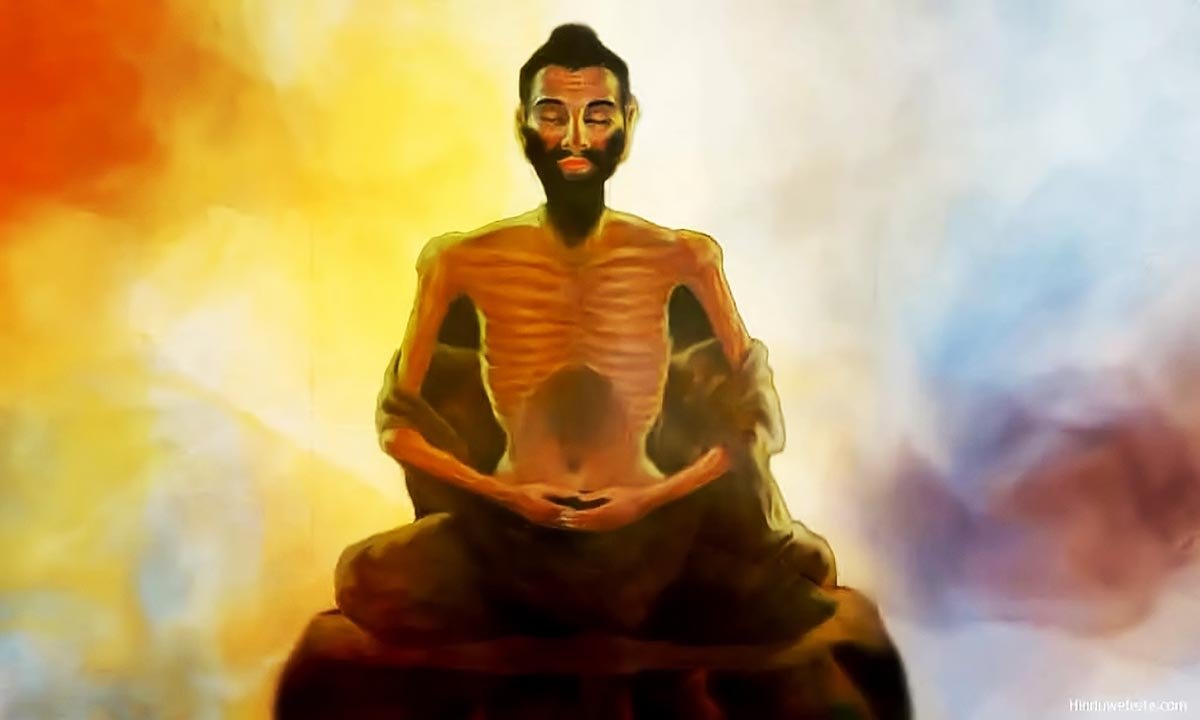
My Guru Maharaj, Bapu, always says fasting has nothing to do with food. There are numerous kinds of hunger, and each one has its own craving. अशनाया मृत्य: mentioned in बृहदारण्यक उपनिषद says, “Your desired appetite can be cause of your death”, The Brihadaranyaka Upanishad is an Upanishad associated with the Shuklaj Yajurveda. Fasting in Sanskrit is called upavasa. Upa means “near” and vaasa means “to stay”. Upavasa therefore means staying near (the Lord), meaning the attainment of close mental proximity with the Lord. Then what has upavasa to do with food?
Fasting and starvation are two different terms that are commonly confused with each other. Starvation means not eating or drinking altogether, while fasting means control and restraint of five sensory and five motor senses. During fasting, one may continue eating or drinking, but under discipline. According to the Vedas, fasting is mentioned in Karma Kanda in the Yajurveda. Fasting in our mythology has a scientific basis and rituals. Eating minimum or no food requires a lot of “tapasya” atonement or self-control.
Whereas the Taittariya Upanishad loudly proclaims: Do not look down upon food; do not neglect food; produce lots of food; Never stop feeding your guests. It clearly says to eat when one has to eat. Neglecting food for material gains, like ‘satyagraha’, want of a partner, want of richness, etc., will only push one down to lesser worlds. If one really has grown so that he feels near (‘Upavasa’) to Brahman and forgets food, there is no harm. However, saying a thousand times a day that it is my ‘Upavasa’ day and thinking every second of food and yet not eating only counts as neglecting food.
We invest a lot of time and energy in procuring food items, preparing them, cooking them, eating them, and digesting them. Certain food types make our minds dull and agitated. Hence, on certain days, if we decide to save time and conserve our energy by totally abstaining from eating food, that can help our mind remain calm and our body at peace. The mind, otherwise preoccupied by the thought of food, now entertains noble thoughts and stays with the Lord.
Bhagavad-Gita urges us to eat appropriately—neither too little nor too much—yuktaaahaara and to eat simple, pure, and healthy food (a sattvic diet) even when not fasting. Fasting is a common tradition in all religions. The New Testament says that Jesus fasted for 40 days. Many Christians fast at the time of Easter as a remembrance of Jesus. Muslims fast during the month of Ramadan. They fast in the daytime; some of them do not even drink water or swallow saliva. In the nighttime, they eat. The Hindus also fast. Jainas fast for months and months. Fasting is a common practice among people of all religions. Staying away from food for a few hours, a day, or a few days is not difficult to do and is not going to create any trouble for most people.
Fasting also saves food for others. When you fast, you can set aside that quantity of food for other people or animals, which means sacrificing a part of your food for others. Fasting also rests the digestive system. When you eat, you eat for only a few minutes. However, it takes hours for the body to digest the food and eliminate what’s not needed. In the same way that you need rest, sleep, and relaxation every day after hard work, it is good to give a little rest to your digestive system. So fasting means resting within.
My Guru Maharaj says fasting is also a part of healing. In many natural healing systems, people are told to fast for some time and then eat some specific food. Eating mindfully is about expanding our awareness around food habits so that we can make more conscious decisions about what we eat and when. Fasting is considered an aspect of healing because food is regarded as medicine. If the medicine is not taken at the proper time, it cannot heal the diseases of the body. Food heals the body and provides strength, nourishes the body so it can grow, and decreases diseases and other negative aspects of life. So fasting is a part of healing. There is also a spiritual aspect to fasting. As said earlier, fasting saves time. So the spare time that was used for preparing or eating food can be used for sadhana, or spiritual practice.
Modern society has made us anxious eaters. We are constantly influenced by the most recent fad diet, dietary recommendations, or academic papers. Our inner voice that tells us one type of food is good and another type is bad deafens us. This can make it very challenging to pick up on our body’s natural cues. The mind is very difficult to satisfy, as it is fickle and will find something new to focus on if one craving is satisfied. Often, emotional eating boils down to a desire to be loved or looked after. We eat to fill a hole, but that hole often can’t be satisfied through eating. To satisfy our heart’s hunger, we need to find the intimacy or comfort our hearts are craving.
Food is needed for the body; that is why “Eat to Live, but don’t live to eat”. Hunger has killed specific numbers, but overeating has killed many. In India, on average, 4 out of 10 people suffer from life-threatening illnesses due to their lifestyle and eating habits. One needs to really control their cravings when it comes to stuffing something in their stomach.

